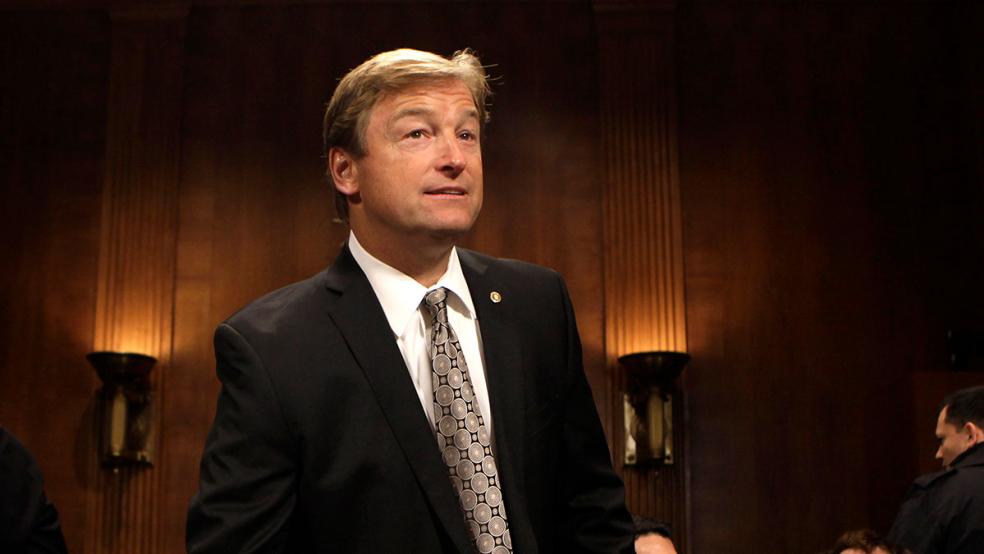By now, everyone knows that Medicaid, the federal-state health care program for the nation’s poor and disabled, would take a massive funding hit under the Senate GOP plan to repeal and replace the Affordable Care Act. With the release of the non-partisan Congressional Budget Office report on Monday, we know just how hard hit: Medicaid would likely shed 15 million beneficiaries from the rolls in the coming decade.
The GOP plan, drafted by Senate Majority Leader Mitch McConnell (R-KY), would reduce government spending on Medicaid by $772 billion over ten years – a 26 percent cut compared to spending under existing law. That would occur as an expanded Medicaid program for 31 states and the District of Columbia was gradually phased out, and a new, stingier per-capita-cap federal funding formula would be put in place, shifting more responsibility to the states, and forcing them to tighten eligibility rules.
Related: Five Reasons Moderates Don’t Like the Senate GOP Plan to Overhaul Medicaid
The Medicaid spending cuts would account for roughly 70 percent of the $1 trillion in overall projected savings or deficit reduction in the Republican’s health care plan and would nearly offset the $800 billion in lost revenues from a repeal of more than a dozen Obamacare taxes on wealthy Americans, the health care and pharmaceutical industry and other interests.
Although the Senate plan differs from the House Republican plan on many issues, including the timetable for phasing out the Medicaid expansion for low-income, childless, able-bodied adults, CBO concluded that the Senate bill would lead to losses of coverage similar to those under the House-passed bill.
What’s more, the 15 million people who would gradually lose their coverage under Medicaid constitute the lion’s share of the 22 million people overall who are projected by CBO to lose their coverage if Congress succeeds in overhauling and replacing Obamacare. The other seven million or so are those who have qualified for Obamacare tax credits to purchase coverage in the individual health insurance markets.
These and other Medicaid numbers couldn’t be more important to McConnell (R-KY) and his lieutenants as they struggle to sell the overall legislation to their members – and limit threatened defections that could doom the bill – before a likely vote at the end of the week.
Related: Why Some GOP Senators Are Balking at Their New Health Care Plan
The Republicans hold a 52 to 48 seat majority in the Senate and can’t afford to lose more than two senators and still pass the legislation by a simple majority under special budget reconciliation rules – and with no Democratic assistance. While four or five GOP conservatives have threatened to bolt unless the bill is toughened, the proposals for overhauling Medicaid have encountered strong resistance from a handful of moderates.
Those senators, including Rob Portman of Ohio, Susan Collins of Maine, Lisa Murkowski of Alaska, Shelley Moore Capito of West Virginia and Dean Heller of Nevada, are all from states that have taken advantage of expanded Medicaid and don’t want to see hundreds of thousands of their constituents stripped of their benefits.
The 50-year-old Medicaid program provides health care coverage for 74 million low-income, with services ranging from hospitalization, physician and dental care, prescription drugs and pediatrics to skilled nursing home care for the disabled and elderly. Senate Republicans say their plan strengthens Medicaid for those who need it most by giving states more “flexibility” while ensuring that those who rely on this program “won’t have the rug pulled out from under them.”
President Trump said that he hoped that Senate Republicans would devise a plan less “mean” than the one that House Republicans narrowly pushed through the House in early May. Yet with the notable exception of providing a much longer phase-out of expanded Medicaid coverage, the Senate Medicaid proposal is much stingier than the House in terms of long-term spending and cost-of-living adjustments.
Related: Uncertainty Over Obamacare Drives Up Average Premiums 18% Next Year
The Senate bill would tie increases in funding for Medicaid to the Medical Consumer Price Index plus 1 percentage point through 2025. But then it would switch to the urban Consumer Price Index. The CPI-U, as it is known, is substantially lower than the projected rate of medical inflation, and even further beneath the projected Medicaid growth rate.
Some health policy experts say that such a sharp reduction in Medicaid funding would leave individual states facing the prospect of either reducing services or increasing their own spending on Medicaid.
Collins, who has said she can't support a bill that would cost "tens of millions" of people their health care, said after the release of the CBO report that she would vote "no" to proceed with the GOP bill. Heller, a vulnerable incumbent up for re-election next year, announced last Friday that he couldn’t vote for the current version of the bill without a lot more funding for Medicaid.
Portman and Capito are demanding that the bill includes $4.5 billion a year for the next ten years for drug addiction treatment, but the bill as unveiled would provide only $2 billion in fiscal 2018. Portman warned that he would oppose the health care legislation unless there is far more Medicaid funding of drug treatment.





